[Photo by camilo jimenez on Unsplash]
Good morning,
There’s a very interesting anecdote that occurs on the pages of Everybody Lies: What the Internet Can Tell Us About Who We Really Are by Seth Stephens-Davidowitz about how we consume news and what it tells about us.
“The economists, Matt Gentzkow and Jesse Shapiro, noticed something interesting: two newspapers employed strikingly different language to report the same story. The Washington Times, which has a reputation for being conservative, headlined the story: Homosexuals ‘Marry’ in Massachusetts. The Washington Post, which has a reputation for being liberal, reported that there had been a victory for same-sex couples…
“For years, in fact, Gentzkow and Shapiro had been pondering if they might use their economics training to help understand media bias. Why do some news organisations seem to take a more liberal view and others a more conservative one?…
“What Gentzkow and Shapiro found interesting, then, about the gay marriage story was not that news organisations differed in their coverage; it was how the newspapers’ coverage differed—it came down to a distinct shift in word choice.
“In 2004, ‘homosexuals,’ as used by The Washington Times, was an old-fashioned and disparaging way to describe gay people, whereas ‘same-sex couples,’ as used by the Washington Post, emphasised that gay relationships were just another form of romance. The scholars wondered whether language might be the key to understanding bias. Did liberals and conservatives consistently use different phrases? Could the words that newspapers use in stories be turned into data?”
After poring over the hundreds of thousands of digitised documents, they could see patterns emerge that they documented and Seth reproduced it as a table in his book.
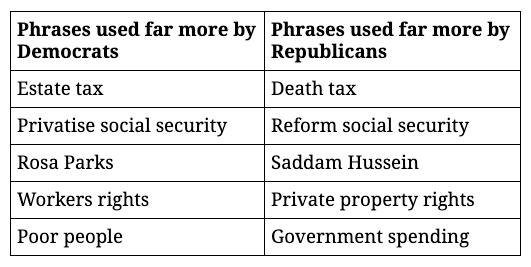
Seth writes, “The economists quickly homed in on one key factor: the politics of a given area … newspapers are inclined to give their readers what they want.”
In this issue
- Why we need a better understanding of coronavirus
- Listen with your eyes
- What floppy disks can say about your age
Have a lovely day!
Why we need a better understanding of coronavirus
In an interview with IndiaSpend’s Govindraj Ethiraj, Gagandeep Kang, professor at the Christian Medical College, Vellore, puts several key facets of our war against the coronavirus—testing, treatment, vaccines—in perspective. She stresses on why we need a better understanding of the disease.
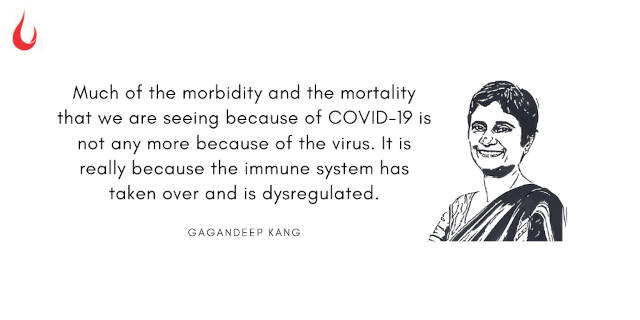
“I think a cure means an anti-viral and we have to remember that in this case, as the disease progresses, it needs different kinds of drugs at different stages. In the early stages, certainly an antiviral would be a good idea. But much of the morbidity and the mortality that we are seeing because of COVID-19 is not any more because of the virus. It is really because the immune system has taken over and is dysregulated. In trying to eliminate the virus, it overshoots and results in multiple consequences that then become difficult to arrest. So, understanding the virus, and understanding the disease process in people who are severely ill is very important.”
By way of background, this slide from COVID-19 Training for Healthcare Workers by Stanford University on Coursera captures the different stages of the disease.
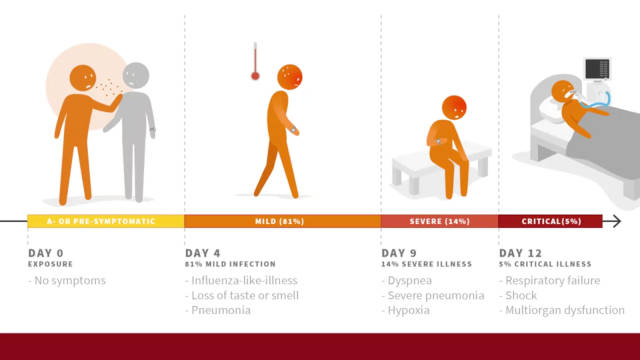
Dig Deeper
Listen with your eyes
In a recent episode of Intersections, Prof Hitendra Wadhwa spoke to Raghu Krishnamoorthy, ex-CHRO GE, about the future of work. Krishnamoorthy shared a story of a person who was on the autistic spectrum.
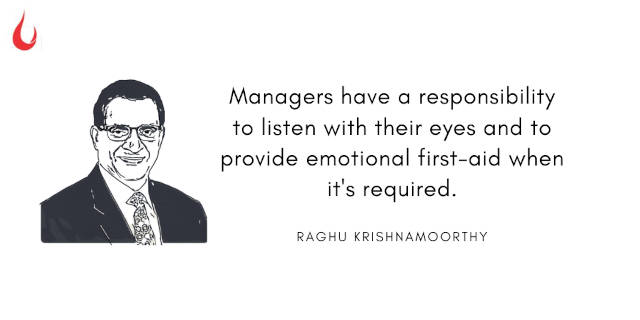
Krishnamoorthy explained that the man was struggling to pick up cues on video calls when his organisation started working from home. For one or two weeks, he was interrupting people when he should not be interrupting. He was silent when he needed to speak because he was missing all the cues.
That’s when his manager “listened with her eyes.”
She called him up and said “What's wrong? Help me understand. You don't seem to be where you should be and is there something I can do to help you?”
He was so grateful for that conversation. He told her he was on the autism spectrum though it was not very obvious. He was struggling with the normal conversational cues.
His manager said, “Okay, I'll figure out a solution.”
Over the next couple of meetings, she instituted a new protocol saying that every time someone wanted to interrupt they had to hold a pink slip, or if someone had finished talking, they had to say “Roger”, just like it’s done on a walkie-talkie.
People found it strange in the beginning. But, she explained to them that one of the colleagues was finding it difficult to follow everybody and therefore she was instituting these rules to make sure that that person was not left behind.
Managers have the responsibility to “listen with their eyes” and to provide emotional first-aid when it’s required. It’s not something we do normally as managers, Krishnamoorthy said.
Dig Deeper
What floppy disks can say about your age
We found this on Twitter:
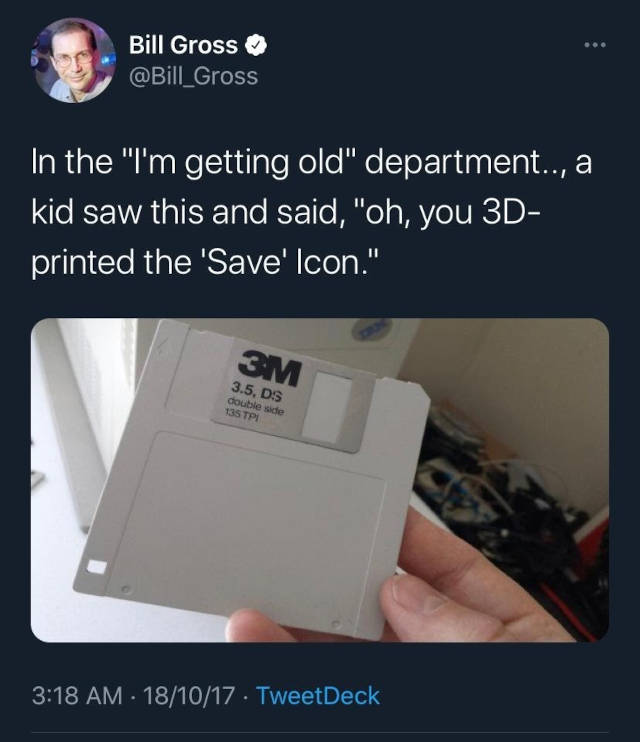
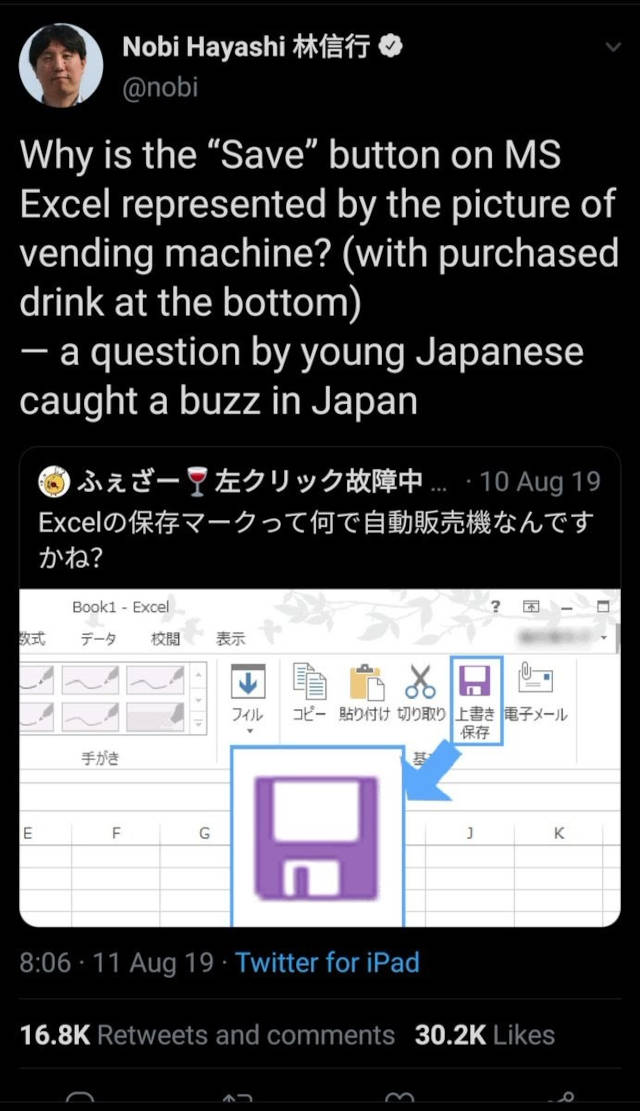
How do you explain floppy disks to the next generation? Tell us about it. Head to our Slack channel.
And if you missed previous editions of this newsletter, they’re all archived here.
Bookmark Founding Fuel’s special section on Thriving in Volatile Times. All our stories on how individuals and businesses are responding to the pandemic until now are posted there.
Warm regards,
Team Founding Fuel


